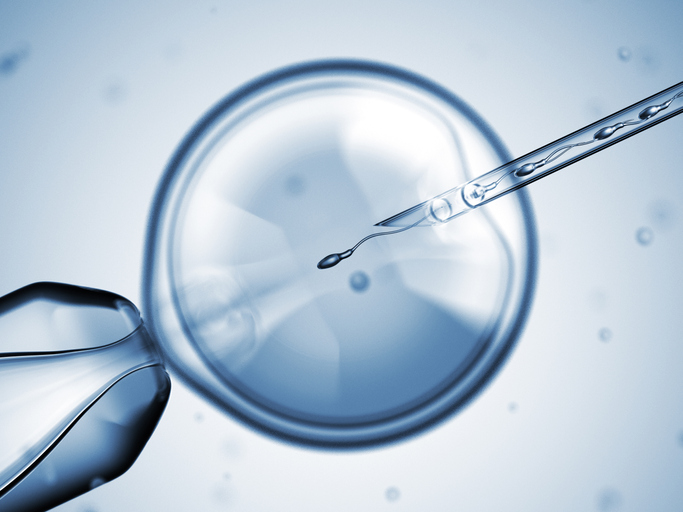Overview
Infertility is when a couple cannot get pregnant despite having regular unprotected sex for at least 12 consecutive months. About 4 out of 5 couples will conceive naturally within a year if they have unprotected sex often – around every 2 or 3 days.
There are a number of possible reasons why infertility happens, including male and female specific factors, as well as general health problems.
Treatment of fertility problems depends on the cause. It includes medicines, surgical procedures and assisted conception, including intrauterine insemination (IUI) and in vitro fertilisation (IVF).
In this article we look at the different treatments available for male and female infertility, when to see a doctor and the outlook of the fertility problems covered.
What causes infertility in females?
Female infertility can be due to a number of reasons, the most common being:
- problems with ovulation (when your ovaries release an egg) – the problems can be due to conditions such as polycystic ovary syndrome (PCOS), thyroid problems and premature ovarian failure (where the ovaries stop working before the age of 40)
- damage to the fallopian tubes or uterus (womb), which can occur after surgery or infection problems with the cervix – surgery can cause scarring or shortening of your cervix. Problems with thick cervical mucus can also impact fertility, as cervical mucus is critical for allowing sperm entry into the womb
- other possible causes including fibroids, endometriosis, pelvic inflammatory disease (PID), and some types of medication, including medicines to treat cancer and long-term or high doses of non-steroidal anti-inflammatory tablets (NSAIDs)

Other factors that may affect a woman’s ability to conceive naturally include:
- age (fertility reduces with age)
- smoking
- drinking a lot of alcohol
- stress
- being overweight or underweight
In around a quarter of infertility cases, no cause can be found in either partner, a condition known as unexplained infertility.
How is female infertility treated?
As with any treatment, it’s important to address and treat underlying medical disorders, such as diabetes or thyroid disease, as well as screening for and treating any sexual infections. Losing weight if you’re overweight, ideally before any pregnancy occurs, can also help. Infertility treatment options for females include:
Medication
This can be used to improve fertility. Some examples include:
- clomifene – a drug used in fertility treatments to stimulate your ovaries to produce eggs (ovulation) if you don’t ovulate regularly, or at all. It’s not a hormone, but clomifene alters your hormone balance to help your ovaries produce eggs and increase the chance of you becoming pregnant. The tablet works best if your BMI is between 19 and 30; any lower or higher will affect the success rates. If you’re significantly overweight, you'll be advised to lose weight before starting clomifene tablets
- tamoxifen – a good alternative to clomifene in women with PCOS and clomifene-resistant cases
- metformin – this plays a role in improving reproductive outcomes in some women with PCOS, although this is limited. There may also be a benefit to using metformin in obese women when combined with clomifene
- gonadotrophins – typically used during fertility treatments such as intrauterine insemination (IUI) or in vitro fertilization (IVF). Injections of gonadotropins are started early in your menstrual cycle to cause multiple eggs to grow to a mature size. Then, human chorionic gonadotropin (hCG) injections are used to trigger the release of these eggs when they are mature.
In vitro fertilisation (IVF)
If you or your partner has an infertility problem, you may consider IVF treatment, where an egg is removed from the woman's ovaries, or a donor egg is used, and fertilised with sperm in a laboratory. The fertilised egg is then returned to the woman's womb to grow and develop.
IVF isn't usually recommended on the NHS for women over the age of 42, because the chances of a successful pregnancy are thought to be too low. But you might want to look into private treatment after this time.
You will then have a series of baseline tests – for example, to check sperm count, ovulation and check whether there are any physical reasons, such as blocked fallopian tubes, that are stopping you from getting pregnant.
If all the results are normal, you need to try for another six months.
If you still can’t conceive, it’s recommended to start investigations and fertility treatment.
If a woman is over 40 and has already been trying to get pregnant for a year, it’s recommended to start investigations and fertility treatment as soon as possible.
Intrauterine insemination (IUI)
This is also known as artificial insemination, and it involves inserting sperm into the womb through a thin plastic tube passed through the cervix (the neck of the womb). Sperm is first collected and washed, and the best, fastest-moving sperm are selected to be used. IUI is sometimes suggested before IVF because it’s cheaper and less invasive, but success rates aren’t high. It isn’t usually offered by the NHS unless you have at least 1 healthy fallopian tube, and where there are at least 5 million moving sperm per ml. This gives IUI treatment a reasonable chance of working.
Surgery
There are several types of surgical procedures that may be used to investigate and treat female fertility problems. These include:
- fallopian tube surgery – where your fallopian tubes have become blocked or scarred
- laparoscopic surgery – used to treat endometriosis and remove small fibroids in the womb
- laparoscopic ovarian drilling – for those with PCOS if ovulation medication hasn’t worked. This is a minor procedure that uses a laser or heat to destroy part of an ovary
What causes infertility in males?
Male infertility is usually linked to:
- poor quality semen, which is the fluid released by a man when he climaxes (comes). This contains sperm, and sperm problems may be related to semen sperm count, sperm morphology (shape), and motility (movement), as well as potential damage to the sperm. However, many cases of poor quality semen may be unexplained.
- testicle problems – sperm is produced and stored in the testicles, and if these have been damaged (such as can occur with trauma, infection or following surgery) this can have an impact on the sperm. If you have a testicular varicocele (an enlarged vein in the testicle), this can raise the temperature of the scrotum and affect fertility
- low levels of testosterone – the male sex hormone that makes sperm. This is known as hypogonadism and can be caused by a tumour, taking illegal drugs, or the condition Klinefelter syndrome, which is a rare syndrome that you are born with involving an extra female chromosome
- ejaculation problems – these include delayed ejaculation (where it takes a very long time to come and sometimes not at all), erectile dysfunction and retrograde ejaculation (where semen travels backwards into the bladder instead of out through the urethra (pee tube)
Some medicines may also affect a man’s fertility. These include anabolic steroids – sometimes used illegally to build muscle and improve athletic performance – sulfasalazine (used to treat conditions such as rheumatoid arthritis and inflammatory bowel disease), and chemotherapy used in the treatment of cancer. Lifestyle factors that can also reduce male fertility include smoking, excessive alcohol intake, an unhealthy diet, stress and age.
How is male infertility treated?
Poor quality semen with a low sperm count can be treated in a number of ways. One of these is to keep on trying – many couples who haven’t conceived after a year become pregnant by the end of the second year of trying. General lifestyle measures such as stopping smoking, cutting down on alcohol, eating a healthy diet and exercising regularly can all help during this time. If you still don’t conceive, there are several options available.
In vitro fertilisation (IVF)
This procedure, where eggs are fertilised outside of the womb and then implanted, may be an option if you have a slightly low sperm count and you've been trying to conceive naturally. IVF can also be used to treat women with blocked tubes, or where there’s no cause to explain a fertility problem.
ICSI (Intracytoplasmic sperm injection)
In ICSI, a single sperm is injected directly into an egg to fertilise it, and the fertilised egg is then transferred to the woman's womb. This can be a useful option if you have few sperm, poor quality sperm, or if you’re unable to ejaculate. In cases where no sperm are present in the ejaculate, sperm can often be retrieved directly from the testicles or epididymis using sperm retrieval techniques.
Donor insemination
This involves using sperm from a donor and can be an alternative to ICSI, especially if you have a genetic disorder that could be passed on to any of your children. It can be considered when a man isn’t producing any sperm or the sperm quality is low, when a couple have been through IVF but have had no fertilisation, when a same sex couple want to try for a child, or when a single person wants to try for a child.
Gonadotrophin treatment
Men with very low levels of the gonadotrophin hormones that stimulate the production of sperm can sometimes be offered treatment with gonadotrophin medication, which is used to try to improve their fertility. But if no cause is found for an abnormal sperm count, hormone-based medicines aren’t used. This is because they’re not known to improve fertility in these cases.
Surgery
Sometimes a varicocele (a swollen vein in the testicle) is thought to be responsible for male infertility, but surgery isn't routinely done to remove a varicocele because it doesn't seem to improve the chances of pregnancy. If there is a blockage of the epididymis tube (that carries sperm) in the testicles then this can be unblocked surgically.
When to see a doctor
If you and your partner have been trying to conceive (get pregnant) without any success – despite having regular unprotected sex for at least 12 months, or sooner if you are over 35 and concerned about your fertility – discuss this with your doctor. They may arrange some simple tests, such as blood tests and semen analysis to see if there’s a reason why you haven’t been able to conceive.
What is the outlook with infertility?
Fertility treatment success rates depend on many things, including the age of the woman having treatment, as well as the cause of the infertility (if it's known). In general, younger women going through fertility treatment are more likely to have a successful pregnancy. The percentage of IVF treatments that result in a live birth (in the latest figures available from 2019) are:
- 32% for women under 35
- 25% for women aged 35 to 37
- 19% for women aged 38 to 39
- 11% for women aged 40 to 42
- 5% for women aged 43 to 44
- 4% for women aged over 44
Current fertility guidelines in the UK recommend that IVF should be offered to women under the age of 43, who’ve been trying to get pregnant through regular unprotected sex for 2 years, or who’ve had 12 cycles of artificial insemination, with at least 6 of these cycles using IUI.
Remember that it’s your local clinical commission group (CCG) that’s in charge of budgets and deciding whether you’re eligible for IVF treatment or not. Before you do anything, make sure to read the rules and criteria for your specific area, and if you live outside the UK, check your own national and local guidelines.
If you're not eligible for NHS treatment or you decide to pay for IVF, you can have treatment at a private clinic, depending on your age and suitability. The costs of this can vary significantly, but 1 cycle of treatment may cost up to £5,000 or more.
Your health questions answered
Does cancer treatment make you infertile?
 Answered by: Dr Roger Henderson
Answered by: Dr Roger HendersonCancer treatments can affect fertility, and this can occur in a number of ways. In women, both chemotherapy and radiotherapy can cause fewer or no eggs to be produced. Surgery to your womb, ovaries or pituitary gland can affect fertility too; and if you have hormone therapy that reduces or blocks the hormones in your body, this can also affect fertility – although this is usually temporary.
In men, chemotherapy can slow down or stop sperm production, and radiotherapy can affect sperm production, erections and levels of the male hormone, testosterone. Hormone treatment can also cause a loss of sex drive and problems with erections. It’s possible to have your sperm tested after your cancer treatment to see if you’re producing healthy sperm. Depending on the type of cancer, fertility sparing treatment might be possible and, if not, eggs or sperm can often be harvested and frozen before treatment is started. These issues can be permanent for some women and men, but for others they may only be temporary.
Do natural infertility treatments work?
Answered by: Healthily's medical teamComplementary fertility treatments include acupuncture and reflexology, but there's no evidence to suggest that these therapies are hugely effective. However, eating a healthy diet rich in healthy fats, fish, poultry, whole grains, fruits and vegetables does appear to be related to better fertility in both men and women.
Key takeaways
- there are many possible causes of infertility in men and women
- it’s often the case that no cause can be found, which is known as unexplained infertility
- there are a wide variety of treatments available that can improve fertility, available both on the NHS and privately
- the younger you are when treatment is started, the greater the chances of success
- if you think you may have a problem with infertility, speak to your doctor






